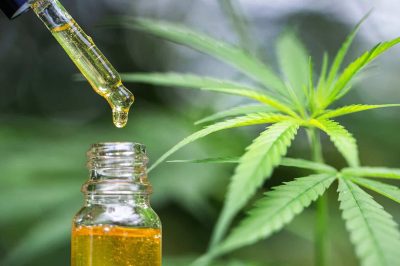CBD oil versus hemp oil: What is the difference and why does it matter?
In recent years cannabidiol (CBD) and hemp products have become immensely popular in the health and wellness market.
Individuals primarily consume CBD for its therapeutic properties and can be consumed in tinctures, in foods, vapes and in topical treatments such as our balms (you can read more about our balms (here). We can’t discuss the benefits of CBD explicitly here due to regulation and so, we recommend you conduct their own research so that you can understand what CBD can offer you.
Hemp oil, on the other hand, while not used for therapeutic purposes is often used for its nutritional value.
Hemp oil is used in a variety of dishes, as cooking oil and in dressings. It can also be found in many topical/beauty products such as face creams, soaps and hair products. Hemp oil is also used in industrial products such as paints, plastics and oil-based lubricants.
Considering the differences in use, why the confusion between CBD oil and hemp oil?
Despite the avalanche of consumers taking advantage of the wide variety of cannabis products on the market, confusion surrounding the differences between CBD and hemp oil persists. Customers are often under the impression that they’re buying CBD when they are in fact buying hemp oil containing zero or trace amounts of CBD.
CBD and hemp oil both come from the same plant, albeit different parts of the plant
Part of the confusion arises from the fact that both CBD and hemp oil are derived from hemp, albeit different parts of the plant.
Hemp oil is extracted from the seeds of the cannabis sativa plant. Hemp seeds are ‘cold pressed’ into an oil containing a nutty flavour that ranges from dark to light green in colour. The darker the colour, the more earthy and raw the flavour.
CBD, on the other hand, is extracted from the stem and flowers of the hemp plant, usually using Co2 extraction. CBD is one of the most prevalent cannabinoids in the hemp plant and in the UK, must come from a strain of hemp containing less than 0.2% THC. Hemp containing low amounts of THC are technically known as ‘industrial hemp’.
The flowers of industrial hemp contain the most CBD. Unfortunately, in the UK the CBD flowers have been ruled a controlled substance by the Home Office resulting in hundreds of thousands of pounds of crop being destroyed. That CBD flowers are considered a controlled substance in the UK has led to UK businesses importing processed CBD flower from abroad and CBD grown in UK farms being sent overseas.
Far reaching prohibitions against CBD restrict information and its discovery
Customers are not only confused by the fact that CBD and hemp oil both come from the same plant but also from what they are exposed to when searching for hemp products.
Customers searching for CBD will often be exposed to non-CBD containing hemp products, this is due to the wide net of multi-institutional restrictionism against CBD containing products.
Google, Facebook and Instagram do not allow paid advertisements, Amazon and eBay prohibit selling CBD on their platforms and PayPal as well as Stripe will not process payments. However, these restrictions do not apply to products labelled as ‘hemp’. This has led to customers searching for CBD being exposed to ‘hemp’ products containing no CBD whatsoever. Unfortunately, disreputable CBD brands have capitalised on this confusion, selling hemp oil on Amazon and eBay as well as their own pages to consumers who are under the impression they are buying CBD.
So, what can you do?
1. Make sure the product you’re looking at is clearly labelled as CBD, with mg, percentage and volume all labelled on the packaging and description.
2. Only trust CBD brands/dispensaries that have or provide lab reports on request. Each CBD product should be accompanied by a third-party lab report, also known as certificate of analyses/COA. This is so you can feel confident that you’re getting what you pay for and that your product doesn’t contain pesticides/herbicides or illegal amounts of THC.
3. Only trust reputable brands. Brands that have consistently good reviews from customers, are stocked by other businesses, have lab reports, can answer your questions and generally give off a positive, open and professional vibe are your go-to, don’t settle for anything less.
4. Share this article and help spread the word to help create an informed populace regarding hemp in the market.

